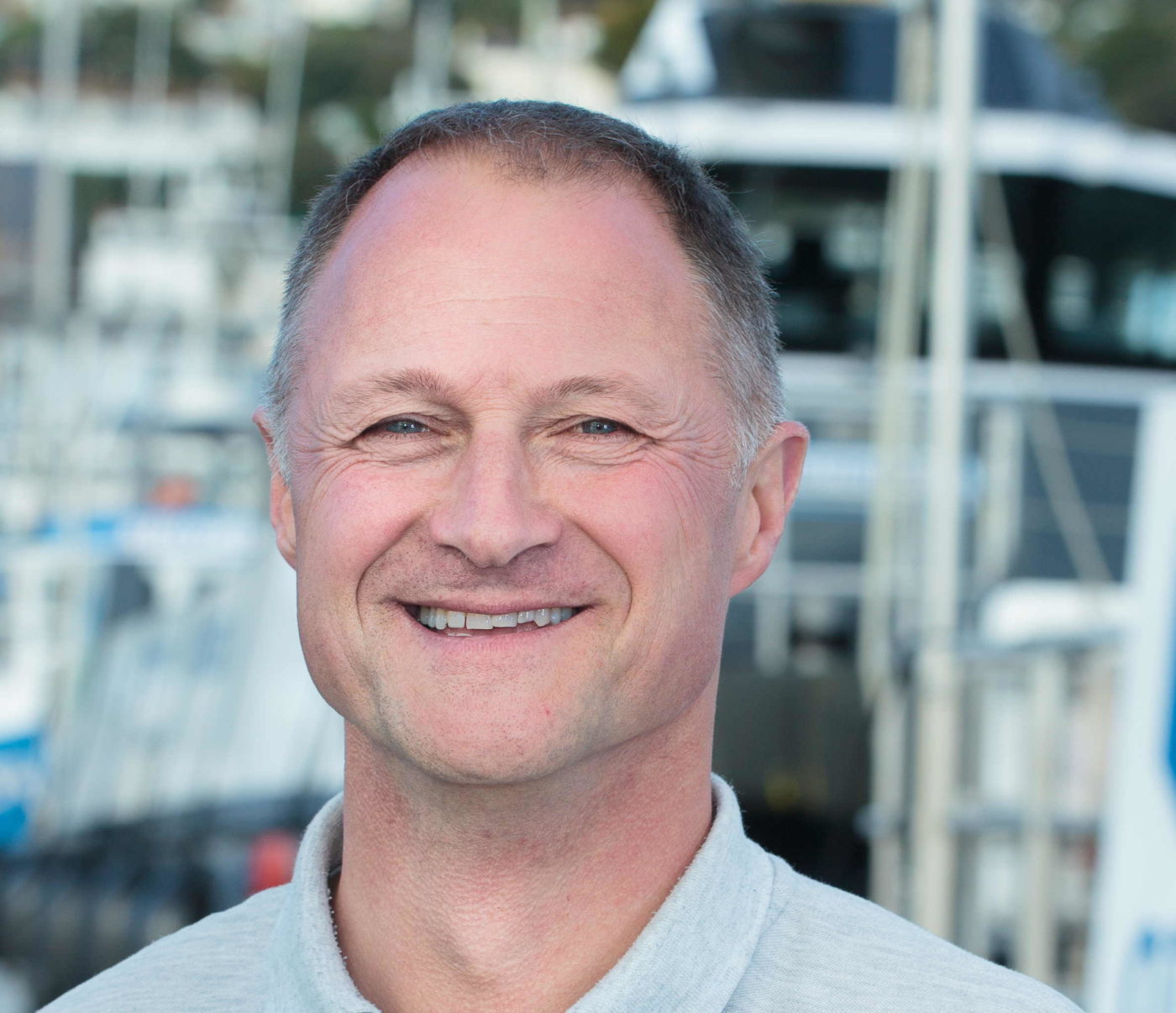At what age did you first decide to take up a career in the Maritime Sector?
I grew up in Pembrokeshire, west Wales and started messing around in boats at an early age. After completing my first commercial yacht delivery while I was still at university, the idea of making a living while working on, or around, the sea was not so much a conscious decision, more a natural progression. A career in the maritime sector has allowed me to work in some beautiful places, such as Turkey, Vancouver Island and more recently Kaua’i.
How did your career progress prior to your current role?
Prior to working with CTVs, I worked as a vessel surveyor for ten years, first in the US and then the UK. As well as doing vessel inspections, I taught at the boatbuilding college in Milford Haven and worked with the International Institute of Marine Surveying (IIMS) to develop the BTEC HND in Marine Surveying. I am still involved in surveyor training and education.
What is the history of Offshore Turbine Services?
Offshore Turbine Services was formed in 2011 by Nick Bright, Phil Collins and Robin Jones. Nick has a successful fishing business in the English Channel and North Sea, fishing for whelks and crabs. Nick was obviously aware of the growth in offshore renewables and he also had a large pool of skilled crew who were eager to try something different. Meanwhile, Phil and Robin were looking to invest in the renewables sector and the combination led to the formation of OTS. The commitment and unique selling point, right from the beginning, has been to run fuel-efficient vessels with a team of like-minded crew, motivated to reducing our environmental impact in all aspects of our business. This has remained our philosophy and, along with safety, remains our most important KPI.
Where are the Offshore Turbine Services fleet currently working?
Four of our vessels are currently in Germany and the other three are in the UK. As well as offshore renewables in the German Bight, over the last three years we have worked on some very interesting projects in the Baltic, including the construction of the first offshore wind farm in Finland.
Do you ever get involved in work outside of the Offshore Wind Sector?
Yes, for the last three years we have focussed as much on marine civils as we have on offshore renewables. All our vessels have water jets and their shallow draft makes them well-suited to river and near-shore work, such as supporting dredging and pipeline projects. We had three vessels working on the Nord Stream 2 Pipeline last year and we are currently working on the Elbe Deepening project. These are exciting projects with innovative partners and they present plenty of new challenges for our team.
How do you see the future for the Workboat industry and how do you think the WA can help its members further?
Workboat operators in Northern Europe have modernised their fleets and greatly improved standards and safety on board over the last twenty years. This has required a huge effort, both in personal commitment and financial terms and it has been led by a number of well-known Workboat Association members. I believe we are going to need to make a similar commitment of time and probably even more resources, to reduce C02 emissions across the workboat industry. We [operators] will need to lobby government departments for assistance, spend money on R&D, develop new fuels, purchase new equipment and in some cases even completely new vessels. This comes at a time of tight margins for all workboat operators, whether it is due to the pricing pressures in offshore renewables and marine civils, or simply because world economic growth has been sluggish over the last ten years. The Workboat Association is in a unique position to coordinate this transformation. It can assist with the necessary new legislation and standards and help to minimise the duplication of effort in our goal to first reduce engine emissions and ultimately, eliminate C02 emissions.

